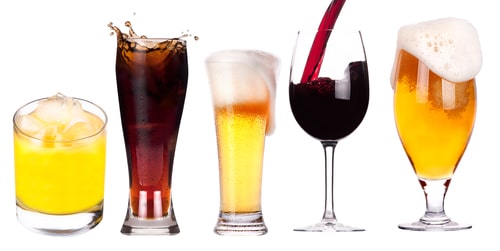 You’ve probably heard of ergogenics, agents that boost athletic performance. An example is caffeine. Caffeine seems to benefit exercise performance for endurance exercises such as running or cycling, but whether it boosts anaerobic exercise capacity is less clear. What fewer people are aware of are ergolytic agents. These are substances, usually medications, which have the opposite effect of ergogenic agents – they decrease exercise performance and the ability to exercise. Some athletes are unknowingly hurting their performance by exposing themselves to these agents without being aware of the effects it has on exercise performance.
You’ve probably heard of ergogenics, agents that boost athletic performance. An example is caffeine. Caffeine seems to benefit exercise performance for endurance exercises such as running or cycling, but whether it boosts anaerobic exercise capacity is less clear. What fewer people are aware of are ergolytic agents. These are substances, usually medications, which have the opposite effect of ergogenic agents – they decrease exercise performance and the ability to exercise. Some athletes are unknowingly hurting their performance by exposing themselves to these agents without being aware of the effects it has on exercise performance.
Ergolytic Agents That Affect Exercise Performance
Examples of some common substances that reduce sports performance are tobacco, smokeless tobacco, marijuana, and alcohol. Up to 80% of college athletes use alcohol. By doing so, they may be unknowingly affecting their exercise performance. Alcohol affects sports performance in a variety of ways. It reduces reaction time, affects balance, alters hand-eye coordination and affects motor skills. It also reduces the force with which the heart contracts and sends blood to working muscles. Nicotine and cocaine are stimulants, which may temporarily boost exercise performance short-term, but the short-term benefits are offset by the long-term effects smoking has on blood pressure, heart and lung function.
Interestingly, caffeine has ergogenic benefits for some people but may have ergolytic effects for others. As an ergogenic aid, caffeine boosts mental alertness and motivation and decreases fatigue. People who work out on an empty stomach in the morning after a few cups of coffee activate an enzyme called lipoprotein lipase. This mobilizes fat stores for the hard-working muscles to use for energy. Having more fat available preserves glycogen, which increases the time a person can exercise before fatigue sets in.
On the other hand, some people experience negative effects of caffeine, making it an ergolytic substance for them. Caffeine is a diuretic, which increases fluid loss. It also causes jitteriness and stomach upset for some people, especially people who are unaccustomed to drinking it. This can negatively impact exercise performance.
Ergolytic Drugs: Common Medications That Affect Sports Performance
A number of frequently prescribed medications can make it harder to exercise. One of the most common examples are medications used to treat high blood pressure or heart problems. Diuretics are frequently used to control blood pressure, and they increase the risk of dehydration. They can also cause muscle weakness, loss of potassium and increase the risk of muscle cramps during exercise.
Another commonly-prescribed group of blood pressure medications that affect sports performance are beta-blockers. Beta-blockers slow down a person’s heart rate at rest and during exercise. This makes it harder to reach your target heart rate, but that doesn’t negate the aerobic benefits of exercise. People taking beta-blockers can also experience fatigue and reduced exercise tolerance. Fortunately, there are other blood pressure medications that don’t affect sports performance.
Other Common Ergolytics
Other medications that affect exercise performance are antihistamines, used to treat allergies and sleeping medications. Both of these classes of medications cause drowsiness and a “hangover” effect that affects balance, strength, and motivation and may increase the risk of injury. Some cough syrups also cause drowsiness and can affect sports performance. Even the commonly used cholesterol-lowering class of medications called statins can affect sports performance. These medications can cause varying degrees of muscle weakness and discomfort that makes it harder to exercise.
The Bottom Line?
Just as there are ergogenic substances like caffeine, there are ergolytic ones that can make exercise more difficult. For medications, there are usually other drugs that can be substituted that won’t have an impact on exercise performance. For alcohol and nicotine, it’s best to avoid them entirely.
References:
Am J Med. 1993 Feb;94(2):205-11.
Sports Med. 2009;39(10):813-32. doi: 10.2165/11317770-000000000-00000.
Related Articles By Cathe:
Why Energy Drinks and Exercise Don’t Mix

